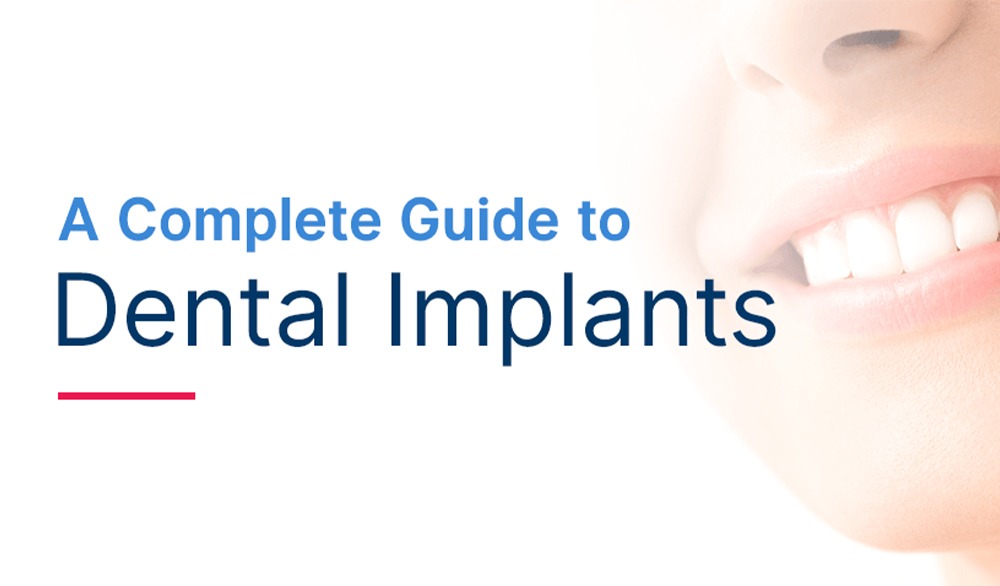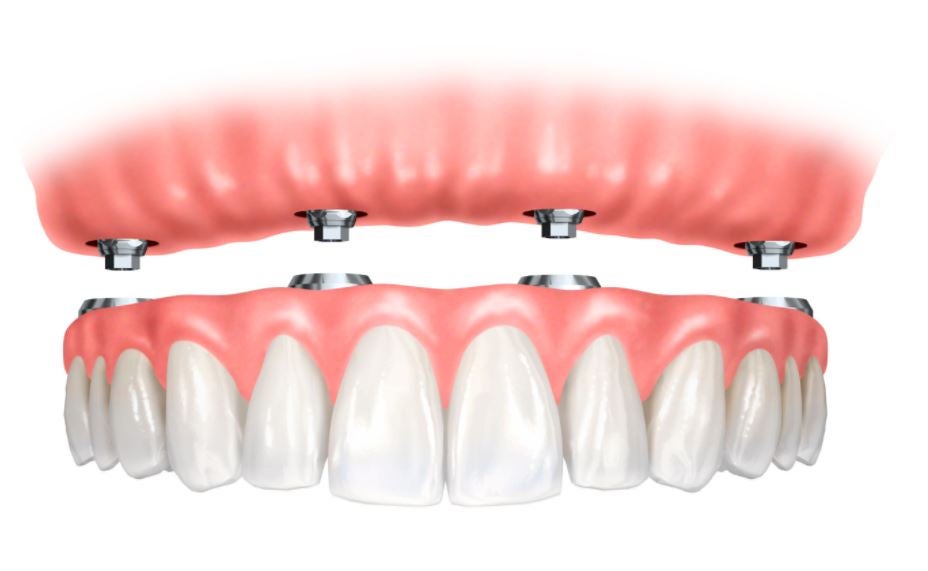The Ultimate Guide To Dental Implants - What You Should Know
Are you missing one or more teeth? Do you feel self-conscious about your smile because of it? Dental implants may be the solution for you. They are a popular and effective way to replace missing teeth, giving you a natural-looking smile that can boost your confidence.

This ultimate guide to dental implants will provide you with everything you need to know before getting started. From the types of dental implants available to the benefits they offer, as well as the procedure itself, recovery process, aftercare, cost, risks, and maintenance – we have got you covered.
So sit back and relax while we take you through this comprehensive guide on dental implants.
Key Takeaways
- Dental implants are a long-lasting solution for missing teeth, improving functionality and appearance.
- Implants can be made of titanium or zirconia, and can be placed using different techniques.
- The implant procedure involves a thorough examination, personalized treatment plan, and post-operative care.
- Proper maintenance, including good oral hygiene habits, is essential for the success of dental implants.
Types of Dental Implants
If you're considering dental implants, it's important to know that there are different types available, each with their own unique benefits and drawbacks. Implant materials vary from titanium to zirconia, with titanium being the most commonly used due to its strength and biocompatibility. Zirconia is also an option for those who may have metal allergies or prefer a more natural-looking implant.
Implant placement techniques include traditional two-stage implants where the implant is placed into the jawbone and allowed to heal before a crown is attached, as well as newer one-stage implants where the implant and crown are placed simultaneously. Mini-implants are also becoming increasingly popular for those who have smaller spaces in their mouths or need support for dentures.
Understanding these different types of dental implants can help you make an informed decision about which option is best for your needs and goals. With that said, let's move on to explore the benefits of dental implants.
Benefits of Dental Implants
You'll experience improved chewing ability, a natural-looking smile, and enhanced self-confidence with dental implants. Dental implants provide a permanent solution for missing teeth that not only improve functionality but also enhance your overall aesthetic appearance.
Here are some of the benefits you can expect from dental implants:
- Improved Functionality:
- Unlike dentures or other temporary solutions, dental implants fuse with your jawbone to create a strong and stable foundation for replacement teeth. This allows you to eat your favourite foods without worrying about slippage or discomfort.
- Aesthetic Appearance:
- Dental implants are designed to look and feel like your natural teeth, making them virtually indistinguishable from the real thing. They also prevent bone loss in the jaw and maintain facial structure, preventing sagging or sunken cheeks.
With all these benefits in mind, it's no wonder why dental implants have become a popular choice for those seeking a long-lasting solution for missing teeth. But before you can enjoy all of these advantages, it's important to understand the dental implant procedure.
The Dental Implant Procedure
Ready to discover the steps involved in getting a brand new smile with durable replacement teeth? The dental implant procedure typically involves several preparation steps before the actual implantation process.
Before anything else, your dentist will conduct a comprehensive oral examination and assessment of your medical history to ensure that you're fit for the procedure. This step is critical because it helps identify underlying health issues that could compromise the success of the surgery.
Following this, your dentist will develop an individualized treatment plan that suits your specific needs. They may use digital imaging technology to create precise 3D models of your mouth, which allows them to determine the optimal placement location for each dental implant.
Once everything is set, you'll undergo a consultation process where you discuss all aspects of the procedure and clarify any questions or concerns you may have with your dentist. With these preparations done, you'll be ready for the actual implantation process.
Are you excited about finally getting those dazzling replacement teeth? After undergoing implants placement surgery, there's still more work to be done before you can fully enjoy your beautiful new smile!
In our next section, we'll cover essential information regarding recovery processes and aftercare tips necessary for maintaining optimum oral health post-implantation surgery.
Recovery Process and Aftercare
Once your dental implant surgery is complete, it's important to understand the recovery process and the necessary aftercare steps to ensure a successful outcome. You may experience some discomfort, swelling, and bruising for a few days following the procedure. However, these symptoms can be managed with pain medication and ice packs.
To prevent complications, such as infection or implant failure, it's crucial to follow your dentist's instructions carefully. This includes maintaining good oral hygiene by brushing twice a day and flossing daily. Also, avoid smoking and alcohol consumption during the healing period. Additionally, you may need to adhere to specific diet restrictions for several weeks after surgery to allow proper healing of the implant site.
Transition into subsequent section: As you continue with post-implant care, there are still essential aspects that you need to know about cost considerations, potential risks involved in this treatment option as well as how best you should maintain dental implants once they have been placed successfully.

Cost, Risks, and Maintaining Dental Implants
Now that you have dental implants, do you know the potential risks involved in this treatment option and how to maintain them properly? It's important to note that while dental implants have a high success rate, there are still some potential risks to be aware of. These include infection, nerve damage, and implant failure.
To avoid these risks, it's crucial to maintain good oral hygiene habits such as brushing twice a day and flossing daily. Also, make sure to attend all follow-up appointments with your dentist for routine check-ups and cleanings.
Another important factor to consider is the cost of dental implant procedures. While they may initially seem expensive compared to other tooth replacement options such as dentures or bridges, they can actually be more cost-effective in the long run due to their durability and longevity. However, it's important to carefully weigh your financial options before committing to any procedure.
To ensure long term success of your dental implants, proper maintenance is essential. This includes practicing good oral hygiene habits as mentioned earlier and avoiding smoking or using tobacco products which can increase the risk for implant failure. Additionally, if you experience any issues with your implants such as pain or discomfort, don't hesitate to contact your dentist immediately for evaluation and treatment options.
Alternative options such as dentures or bridges may also be considered depending on individual circumstances and preferences. Ultimately, discussing all available options with your dentist will help determine the best course of action for restoring your smile and maintaining optimal oral health in the future.
Conclusion
Congratulations! You've now reached the end of this ultimate guide to dental implants.
By now, you should know that there are two types of dental implants: endosteal and subperiosteal. Each comes with its own benefits, such as improved chewing ability and better oral health.
If you're considering getting dental implants, remember that the procedure involves several stages, including a consultation, surgery, and recovery process. Don't worry though -at our clinic Sugar Land Dental Lounge the recovery process is manageable with proper aftercare.
As with any medical procedure, there are risks involved, so it's important to discuss these with your dentist beforehand. Additionally, maintaining good oral hygiene is essential for ensuring the longevity of your dental implants.